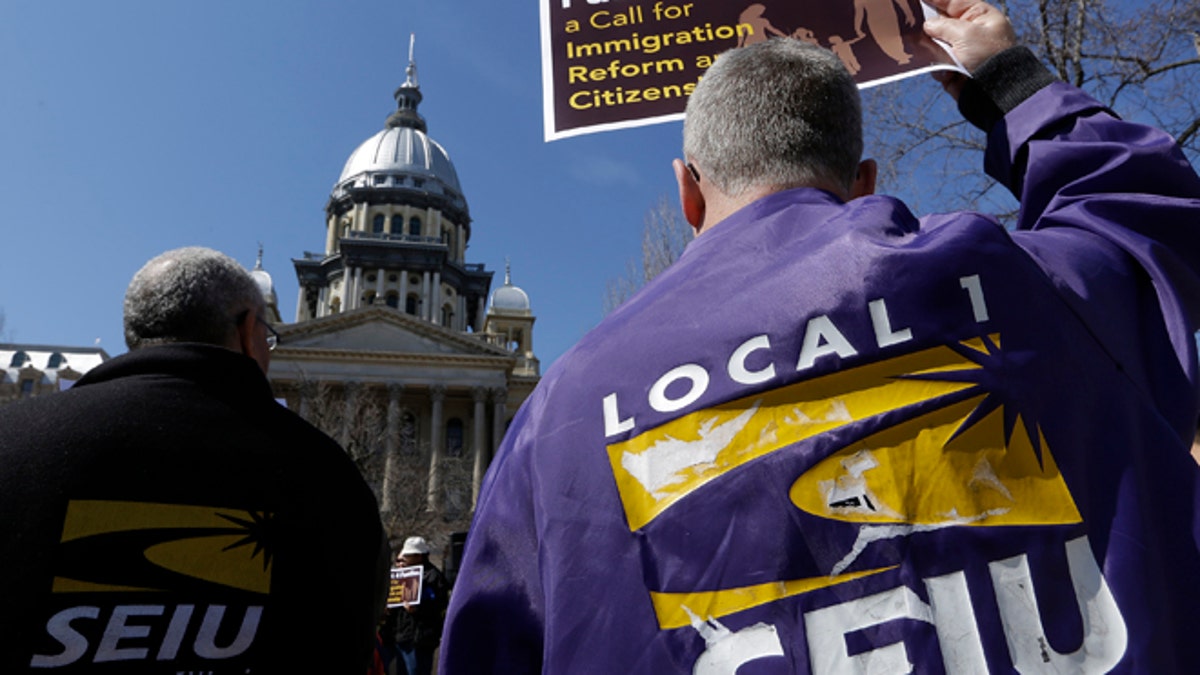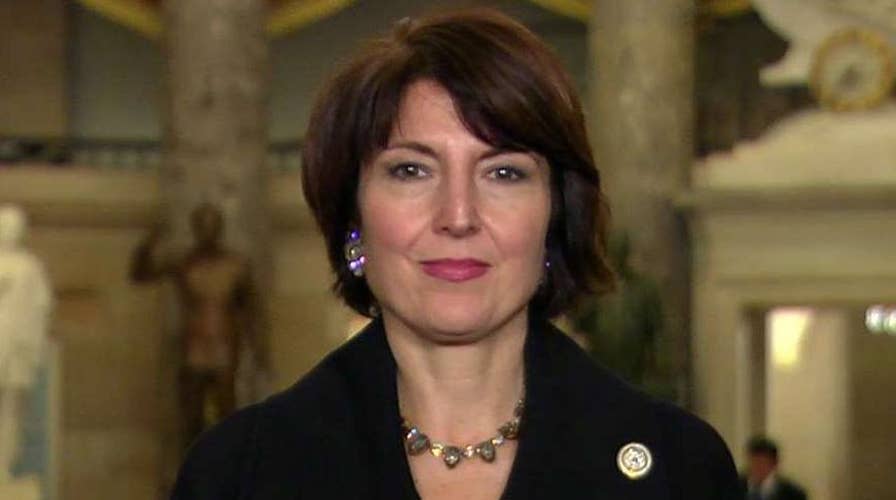Rep. Cathy McMorris Rodgers on tax reform goals
House GOP Conference chair talks timeline to finalize bill.
House Republicans want to pull the plug on a controversial scheme in which unions collect dues from federal subsidies to people cared for by family members.
Despite a 2014 Supreme Court ruling barring unions from forcing family caregivers to pay union dues, 11 states allow health care labor organizations to classify them as public-sector workers who must pay dues. Those dues are then collected from federal payments to states through Medicaid and other government programs before funds are passed through to intended recipients.
“Nobody is telling the providers who see the value of unions to stop paying dues. But let the providers get their money, then write a check. This way, they’re making their own decision.”
“Even though the Supreme Court has spoken, we’re still seeing a lot a states deducting dues from benefit checks from people who do not want or need a union,” F. Vincent Vernuccio, a senior fellow at the Mackinac Center for Public Policy, said Monday. “Nobody is telling the providers who see the value of unions to stop paying dues. But let the providers get their money, then write a check. This way, they’re making their own decision.”
Health-care givers were on Capitol Hill on Tuesday to ask lawmakers to stop liberal-leaning states -- including California, Minnesota and Illinois -- from classifying family caregivers as public employees.
House GOP officials estimate as much as $200 million a year being diverted from caregivers to unions.
They say that paying unions is not what Medicaid is designed for.
Critics of the so-called “dues skimming” says some caregivers don’t even know the money is being deducted from their checks and that opting out of the process remains complicated or onerous. Such caregivers in Oregon, for example, can reportedly only leave their union during a varying, 15-day annual period.
Among those on Capitol Hill this week to bring awareness to the issue was Miranda Thorpe and her 21-year daughter, Sarena, for whom she provides care.

The SEIU has reaped huge amounts of money through the system (AP)
“What bothers me the most is, I know a lot of parents, because I’m in this community,” said Thorpe, a registered nurse. “And none of them really understand that this is happening to them. They have no idea. I don’t think the state should be the factor that colludes with unions to take out this money without people’s knowledge. If they really wanted people to have a choice, then they should let them know what their options are. … I think it’s very unfair, since this is a very vulnerable population.”
Cathy McMorris Rodgers, chairwoman of the House Republican Conference, is set to introduce legislation in the coming weeks to stop the practice in all 50 states, her office told Fox News on Monday.
“This is robbing our nation’s most vulnerable who need Medicaid the most. Every dollar that is diverted from a caregiver to a union hurts that family’s ability to care for their loved ones. Paying unions is not what Medicaid was designed for,” McMorris Rodgers’ office said in announcing the congresswoman’s plan for a bill that will ensure that Medicaid dollars are spent on caregivers, not unions.
The practice of collecting dues for unions started decades ago, when state governments were allowed to classify some workers getting government wages -- including health-care workers and correctional officers -- as public employees.
The states then allowed unions to collect dues from such employees even if they didn’t join the union -- with union leaders arguing that their collective bargaining for better wages or working conditions benefits all of the workers, even those who are non-union.
The other states that set up to deduct funds from caregivers include Connecticut, Maryland, Massachusetts, Missouri, New Jersey Oregon, Vermont and Rodgers McMorris’ home state of Washington.
One of the biggest unions benefiting from the system is Service Employees International Union, which represents as many as 2 million workers across the country, including janitors, probation officers and home-care workers.
“As a voluntary dues paying member of SEIU775, I see how my union fights with me and for me. Knowing this allows me to focus on what I care about most, providing the highest level of care for the person I take care of — my daughter,” said Sherri Gangitano who resides in Spokane Valley, part of Rep. McMorris Rodgers’s district.
Critics of dues-skimming also suggest a lot of the money is being spent on political-related activities.
SEIU put more than $39 million into the 2016 election cycle, largely in support of Democratic candidates and their related political committees and groups, according to the nonpartisan, nonprofit group OpenSecrets.org.
Medicaid is a joint state-federal program that provides medical services for an estimate 74 million low-income Americans. However, the cost of the program continues to increase annually. Medicaid spending in 2016 increased 3.9 percent, to $565.5 billion, according to the Centers of Medicare and Medicare Service’s most recent data.
The McMorris Rodgers plan does not attempt to make structural changes to Medicaid.
House Republican leadership had made a priority this year of reforming so-called entitlement programs like Medicaid, Medicare and Social Security, which help the poor and elderly but is one of the federal government’s biggest expenses.
House Speaker Paul Ryan last month called health-care entitlements “the biggest drivers of our debt” and sought to lower costs by making the U.S. health-care system more competitive, in large part by offering patients more choices.
But Ryan, R-Wis., appears to lack support for such efforts from some of the House’s more fiscally conservative members. And Senate Majority Leader Mitch McConnell, R-Ky., has essentially nixed the reform idea is his chamber, saying he doesn’t have the needed votes from Democratic senators.





